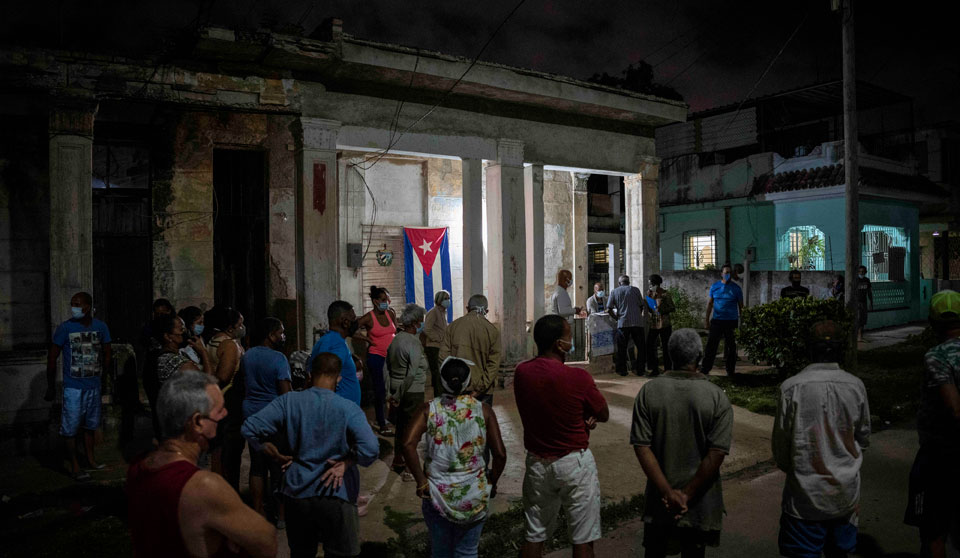
If approved by Cuban voters next month, the country’s new Family Code will stand as a social revolution, enshrining the right of all people to form a family regardless of sex or gender identity and recognizing a variety of family forms. On July 22, the National Assembly of Cuba passed the bill, a legal document that responds to the reality of Cuban families today. That decision set in motion a popular referendum that will take place September.
The Family Code, as explained by a young Cuban activist, “protects vulnerable people more, brings together a number of measures to help society, [and] enables new opportunities since it recognizes…the family bond of people.”
The Family Code is more than a simple legal regulation; rather, it is a continuation of the Cuban constitution that came into effect in 2019, which mandated a review of the existing Family Code. In April of that same year, a temporary working group was brought together by the National Assembly comprising individuals from the legal system, civil society, and different ministries to draft the new family code.
Following the efforts of the temporary working group, special consultations between mass organizations and social institutions occurred, which included the Cuban National Lawyer Guild, the Scientific Society of the Family and Social Law, as well as the Democratic Study Center and the Youth Study Center. There were also meetings with different Cuban religious groups. These consultations and meetings resulted in modifications to 273 of the original 483 articles in the draft law.
This new version of the draft Family Code was then brought to the National Assembly in 2021 where the next phase of consultation was declared. Between February and April 2022, society-wide popular consultation took place, where more than six million Cuban people participated in discussion. During this period, nearly half the document was amended. Nearly 62% of the Cuban population who participated considered themselves in favor of the totality of the document.

During the process of popular consultation, there were two particularly contentious aspects that ultimately passed with no edits: the right of people to adopt and marry no matter their sexual or gender identity and the right of children to have autonomy over themselves. The Cuban constitution calls for the elimination of all kinds of discrimination, meaning that the Family Code cannot violate the dignity of any person.
The result of this long process is a Family Code designed to reflect Cuban society and to answer the needs of the family. To achieve these goals, research was conducted to determine what are the modern needs of Cuban families and what is lacking in existing Cuban laws.
Despite how advanced the 1975 Family Code was, it still provided a view of the family unit as being centered on one man and one woman. This nuclear family model does not reflect reality in Cuba, where there are families with single mothers or fathers or extensive family structures where aunts, uncles, grandparents, or stepparents are responsible for children. Some families are composed of parental guardians who aren’t related to their children. International conventions that Cuba is a member of were also considered, such as those that protect the rights of children, disabled people, and conventions that protect against gender discrimination.
The principal aspect defining a family under the new code is affection. The new Cuban constitution centers human dignity and the right of all people to form a family, and the new Family Code reflects these rights. Articles written in the family code include guarantee of alimony for support of family, family relations, relatives, or affiliations of different kinds, whether via adoption, legal status, sentimental affiliation, or assisted reproduction.
This includes all kinds of families, making it the first code that includes multi-parental families in the region, which is to say it will be the first time that children can legally have more than one mother or father. Articles were written for mediation to solve family issues, as were articles for protection of Cubans in relationships with non-Cuban citizens.
The Family Code went through a rigorously democratic process. From the first process of consultation, where more than half of the Family Code was modified, to the second part where through the mass participation of Cuban people over 40% was modified, the collective process of the enactment of legislation becomes clear.
The Family Code was also written in understandable language so that the Cuban people could easily comprehend the legalities involved. The code is intended not just for use in courts of law, but also as an educational document for families to use as a guideline to understand their rights and responsibilities.
The final step of the process, the national referendum, will serve to legitimize the Family Code. It doesn’t impose any kind of model on Cuban families; rather, it protects all people and families, and future families, as required under the Cuban constitution.
People in other countries, including the United States, can learn a lot from the democratic process that created and amended the Family Code. It began with the goal of protecting families, which, compared to a country like the U.S. that is eroding women’s rights, represents a drastic alternative worth attention. Abortion isn’t just legal in Cuba; in fact, it is unimaginable that abortion could ever become illegal, as the Cuban constitution enshrines the right of women’s autonomy.
From the starting point of recognizing these fundamental rights, the Family Code was crafted at a grassroots level, where millions of Cubans had their say on every line of the law. After amendments, the final version is now being handed back to the Cuban people to give their final approval. The government says it is all an act of the Cuban people trusting in each other, the act of “a humane people who understand the needs” of their fellow Cubans. It is expected that a wide majority will vote to enact the Family Code in the September referendum.












Comments